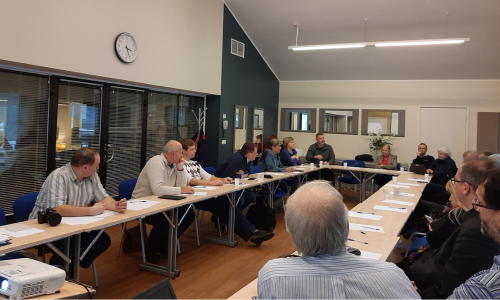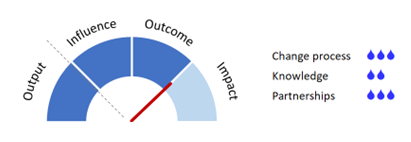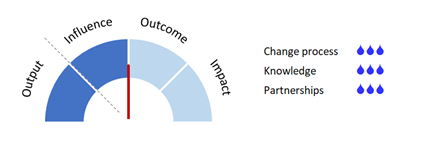Regional impact
Amplifying local voices in Estonian water management consultations

Polluted sediment accumulation makes Haapsalu Bay one of the most ecologically degraded water bodies in Estonia. The government announced in 2017 that it was updating management plans, but disagreements over whether the problems were marine or land-based caused delays.
To help break the impasse, GWP Estonia organised a roundtable seminar in Haapsalu on 29 February 2020 to allow local stakeholders to voice their concerns and propose solutions. Thanks to lobbying and continual interest from GWP Estonia, several measures and financial allocations dedicated to Haapsalu Bay have now been approved. The Estonian Water Basin Management Plan 2022–2027 includes measures to construct a EUR 5 million central sewage system for the village of Herjava on the Haapsalu Bay coast, remove reeds and rotting plants from the bay, improve port management in the area, and put in place improved supervision of these management practices. Similarly, the updated Marine Strategy Directive, adopted in 2023, includes measures to open spawning routes for fish and to remove the accumulating sediment from Haapsalu Bay. GWP Estonia organised a second roundtable on 23 September 2023 to review these developments with local stakeholders.
The Water Basin Management Plan 2022–2027 measures have also earmarked EUR10 million for the removal of sediment from Haapsalu Bay and Tallinn Bay. GWP Estonia will now work to understand how these funds will be divided to ensure the continued revival of Haapsalu Bay.

Bringing integrated drought management to Armenia and Kosovo
Higher temperatures and shifting rainfall patterns are increasing the likelihood of droughts in Armenia and Kosovo. GWP Central and Eastern Europe have been working with the governments of both countries to ensure they are better prepared for water shortages.
In Armenia, efforts have focused on implementing a project focusing on an integrated drought management approach, funded by Visegrad Fund. The Armenian Community of Practice on Droughts, established in April 2023 by GWP Central and Eastern Europe, brings together relevant stakeholders and marks an important step towards efficient and sustainable drought management. This cooperation was further encouraged by training sessions, workshops, and a monthly bulletin – all designed to enable stakeholders to implement integrated drought management more effectively. “The collaboration with GWP Central and Eastern Europe … has been instrumental in reshaping our approach to drought management,” reported Alisa Savadyan, Project Lead in Armenia. “We are now better equipped to proactively address the challenges posed by climate change.”
In Kosovo, GWP Central and Eastern Europe led the development of a Drought Action Plan. Working in tandem, the Water and Wastewater Works Association of Kosovo ensured that ensuing activities – ranging from training and dialogues to improving communication channels – were aligned with existing processes and involved high-level stakeholders, including the Inter-Ministerial Water Council, the Ministry of Environment, Spatial Planning and Infrastructure, Regional River Basin Authorities, and the Kosovo Hydro Meteorological Institute. The improved governance processes that have resulted from these efforts are already being applied to water management projects in Kosovo, such as the production of the Draft Action Plan for the Drin River Pilot Basin. These projects are contributing to long-term climate resilience and improved sustainable water management for the country.

